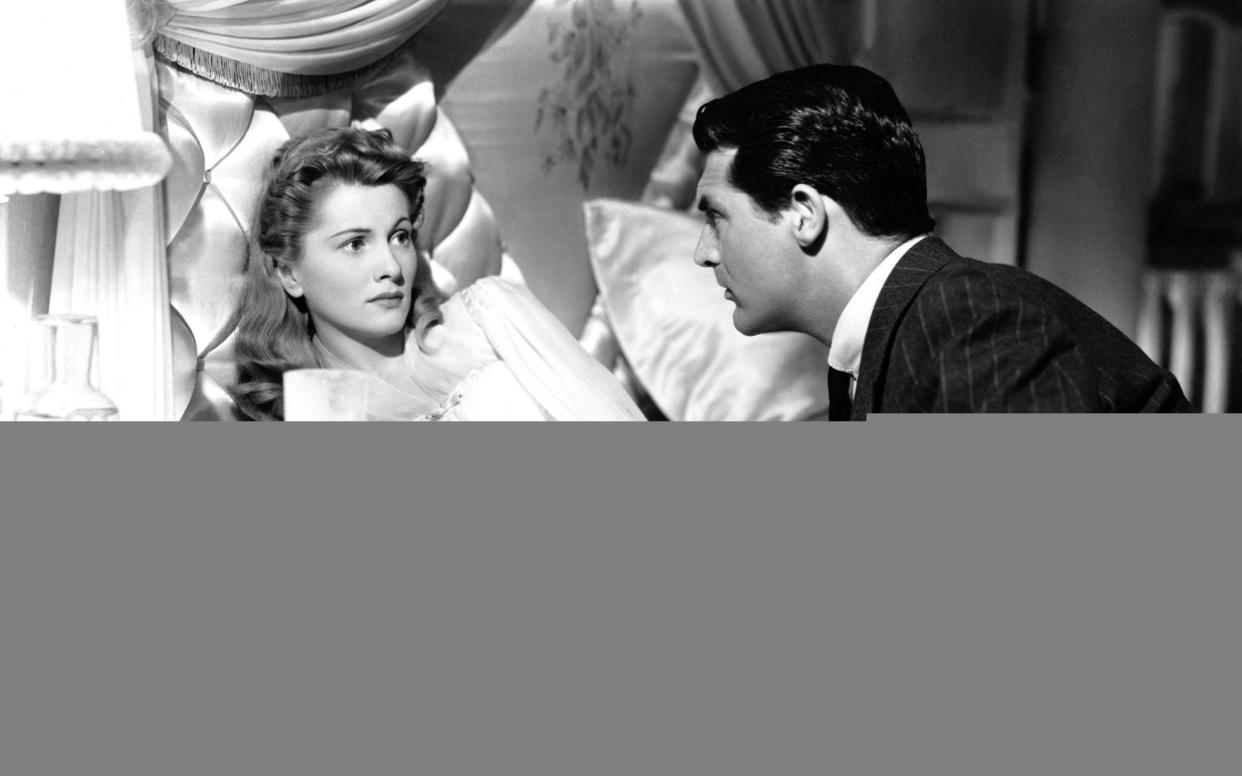Hitchcock was a dirty old man – but I’ll still watch this gripping classic

Almost all of the films from Hitchcock’s American period, which began in 1939, are, for me, deeply dissatisfying. While those he had made in England – such as The 39 Steps (1935) and The Lady Vanishes (1938) – display an unselfconscious storytelling style, his American films seem to lean too heavily on the director’s unfortunate reputation as a dirty old man, and his fetishised ideal of the perfect blonde, such as Grace Kelly, or Tippi Hedren. Some I find downright repellent, Psycho (1960) above all. The Birds (1963), which shows great invention, is surely the best of his later films.
But Hitchcock’s fourth Hollywood production, Suspicion (1941), is highly ingenious. Leading a cast of British stalwarts – Cedric Hardwicke, May Whitty and Leo G Carroll among them – Joan Fontaine starred as Lina McLaidlaw, a never-been-kissed innocent young Englishwoman and a general’s daughter. On a train, she is swept off her feet by a stranger, Johnnie Aysgarth, played very much against type by Cary Grant. Aysgarth is an absolute stinker: an obvious roué, he radiates the character of a man with woman troubles. We soon learn he has financial troubles, too, which he rapidly realises might easily be remedied by McLaidlaw’s well-heeled family. He proves his ultimate shiftiness by crashing a hunt ball hosted by the general, and lying about how he got there.
A useful conjunction propels McLaidlaw into marriage with Aysgarth: every opportunist bone in his body detecting her use to him, and her overhearing her parents say that she is unlikely ever to marry. She proves them wrong by eloping with Aysgarth, despite her being far too sensible not to harbour suspicions about him. Her parents are horrified; and it is only after the couple’s return from a luxurious honeymoon that McLaidlaw realises her husband not only has no money, but that he has no means of earning any, and is a serious gambler.
Aysgarth’s loathsomeness grows by increments: he goes to work for an estate-agent cousin, but steals from him and is sacked and threatened with the law unless he repays the debt (none of which he tells his wife). He sells two antiques her father had given them as a wedding present. He has a rather bovine friend, Beaky (played by another leading English character actor, Nigel Bruce), whom he ropes into a property deal and who dies in suspicious circumstances. Then, in what must have felt a blessed release, the general dies, but Aysgarth learns to his horror that he has left his daughter no money. She, not being stupid, notes his disappointment, and starts to suspect he is plotting to kill her for her life assurance.
In a departure from the book on which the film was based, Hitchcock contrived an ambiguous denouement, and claimed the studio forced him to do so. Grant, who gives a superb performance as a rotter, was precious property, and they did not want his aura damaged by him being seen to be a callous murderer. Hitchcock handled these demands well. Today, nearly a century on, Suspicion remains absolutely gripping.
